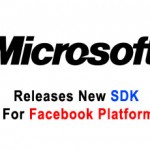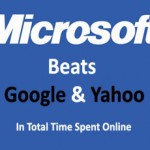 Mountain View, California — In a bid to gain a foothold in an ultra-competitive mobile advertising market, Google on Monday took aim at the mobile display ad market when it announced that it has agreed to acquire mobile-ad technology provider AdMob for $750 million in stock deal.
Mountain View, California — In a bid to gain a foothold in an ultra-competitive mobile advertising market, Google on Monday took aim at the mobile display ad market when it announced that it has agreed to acquire mobile-ad technology provider AdMob for $750 million in stock deal.
Although, Google has made little progress in offering mobile search ads to the so-called third screen, but it has been long been trailing behind in providing mobile display ads, or in-application ads. Nevertheless, Google, yesterday drew a win-win picture, noting that AdMob’s acquisition will enhance the company’s expertise and technology in mobile advertising and give advertisers and publishers greater edge in this emerging market.
“Despite the enormous growth in mobile usage and the substantial investment by many businesses in the space, the mobile web is still in its early stages," Susan Wojcicki, vice president of product management, and Vic Gundotra, vice president of Engineering at Google, wrote in a blog post. “We believe that great mobile advertising products can encourage even more growth in the mobile ecosystem. That’s what has us excited about this deal."
The acquisition comes amid an aggressive boost to Google into the mobile sector, as its Android operating system is powering a host of smartphones that are either on the market or on carriers’ product road-maps to debut this year and next.
The purchase will give Google a strong footing in the fast-growing ad market that Jupiter Research expects will reach $5.7 billion by 2014.
Wojcicki and Gundotra said the AdMob acquisition will help it deliver better products and tools and more effectively extend its moneymaking Internet advertising domain into the booming world of mobile devices for publishers of mobile Web sites and applications. It will also offer better, more relevant ads on a grander scale for advertisers focused on the mobile space, they said.
Consumers, meanwhile, will gain from more “mobile ads that deliver useful information,” they concluded.
“Mobile advertising has tremendous possibility as a marketing medium and while this sector is still in the early stages of development, AdMob has already made exceptional progress in a very short time,” said Wojcicki.
“AdMob is the example of Silicon Valley startup — generating impressive year on year revenue growth — and we are excited to welcome this talented team to Google.” AdMob fills those needs, ideally helping Google reach advertisers trying to engage smartphone users, and helping content publishers and mobile application developers get a cut of the money collected from ads paired with their content, added Wojcicki.
Google is also reported to be developing its own branded handset independent of carrier subsidies.
AdMob, founded in 2006 by Omar Hamoui as a California technology startup, specializes in building tools for display advertising for mobile sites as well as serving ads within the third-party applications that are proliferating in smartphones such as Android-powered devices and Apple’s iPhone.
Hamoui concluded that the more advertising dollars that flow onto the mobile Internet, the more creative offerings will flourish in that environment.
“I think people underestimate how important ads have been to funding the development of innovative content on the Internet,” Hamoui said.
“Our goal all along at AdMob has been to make it possible for developers and publishers to bring their products and ideas to mobile with the same business model.”
“We are not going away,” Hamoui wrote in a note on his Web site. “After our deal with Google closes, we will work together to intensify the pace of innovation in this area.”
AdMob’s technology interface helps customize digital display advertisements to small screens on smartphones, whose entire Internet browsers make them a rich, new playground for mobile ads.
The company rose to success running mobile ads for Ford and Coca-Cola on Apple’s iPhone, but diversified to support smartphones running RIM, Nokia, Palm and Google’s own Android operating system.
AdMob’s product and engineering, business development, and sales teams will remain intact, Hamoui said. “It is just that now we will be able to do an even better job for all of our customers,” he said.
Google said the acquisition would complement its in-house mobile advertising technology, which has primarily focused on search ads. During a recent earnings call, Google CEO Eric Schmidt said the company could make strategic acquisition per month both large and small in search, mobile ads and other areas.
Regulators will probably look hard at Google’s latest acquisition, which is expected to close in the next few months.


